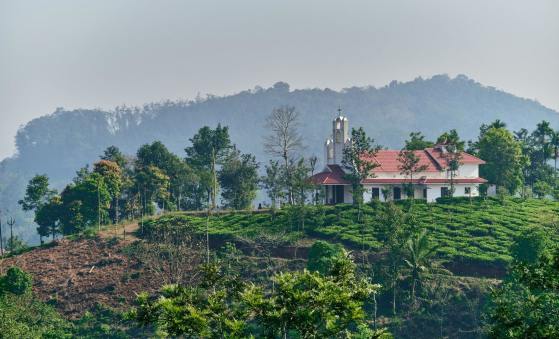
The Union Home Ministry has revoked the Foreign Contribution Regulation Act (FCRA) licence of the Indian Social Institute (ISI), a prominent 72-year-old think tank, in a move that has raised concerns over crackdown on critical voices by the government. This action comes on the heels of the ministry cancelling the FCRA registration of World Vision India (WVI), a major US-based Christian non-profit working on children's issues, earlier in January 2024.
The decision to cancel ISI's registration that allowed it to receive foreign funds comes after the institute allegedly violated regulations of the FCRA, officials stated. However, no details on the specific violations were provided.
Established in 1951, the ISI is an influential Jesuit organisation that has been involved in social and policy research, publishing analysis on issues like education, human rights and conflict zones. Its recent journal “Social Action” carried a critical study of the National Education Policy 2020 and explored ethnic tensions in Manipur as well as "unresolved political aspirations" in Kashmir and Nagaland.
ISI has not issued any statement regarding the revoking of its FCRA licence as of now. The institute's journal Social Action is recognized by the University Grants Commission Consortium for Academic Research and Ethics.
In January, the Home Ministry had also cancelled the 70-year-old WVI's FCRA registration on grounds of "violation" of foreign funding rules. WVI, part of the US Christian voluntary group World Vision operating in over 100 countries, had been registered under FCRA since 1986 to receive donations for social and educational programs in India.
WVI's FCRA registration was first suspended in November 2022, a year after it applied for renewal which is required every 5 years. The suspension was extended in May 2023 before the final cancellation order citing alleged non-compliance with FCRA provisions. According to WVI, the suspension had significantly impacted its operations as it could no longer access foreign funds or assets to settle liabilities.
The FCRA Act lays down regulations for NGOs and think tanks to accept foreign contributions and funding. Registrations under the Act are granted for five years by the Home Ministry, which evaluates licence renewals based on annual returns and checks if foreign funds were utilised for their stated purposes. Any diversion is treated as a violation that can lead to cancelation or suspension.
This latest string of actions is part of a wider crackdown by the government on non-profit organisations over the past year. Over 100 NGOs, including high-profile ones like Oxfam India, the Rajiv Gandhi Foundation headed by Sonia Gandhi, and the Harsh Mander-led Centre for Equity Studies have lost their FCRA registrations.
Just last month, the Home Ministry revoked the 50-year-old think tank Centre for Policy Research's license, with its president Yamini Aiyar terming the reasons behind the decision as "incomprehensible and disproportionate." Tamil Nadu has witnessed one of the highest number of FCRA cancellations in the country so far.
According to a report by The Hindu, the FCRA registrations of over 20,000 organisations have been cancelled across India till February 4 this year. Changes in the law now require NGOs to renew their FCRA licences every five years, making the registration non-permanent. Between 2019-2021 alone, 783 renewal applications were denied by the government.
While the Home Ministry maintains that the FCRA crackdown is aimed at preventing misuse of foreign funding against "national interest," activists have alleged this is a means to muzzle voices critical of the government's policies and curb the activities of civil society organisations.
Nonprofits working across various sectors like education, social welfare, human rights and religious groups have faced the FCRA heat, leading to job losses and organisational challenges. Some have questioned the proportionality of the actions initiated under the garb of regulatory compliance.
With thousands impacted by the strict implementation of the amended FCRA rules, concerns have risen over the government overreaching and stifling the non-profit sector that has historically played a key role in India's policy discourse and social development initiatives.




